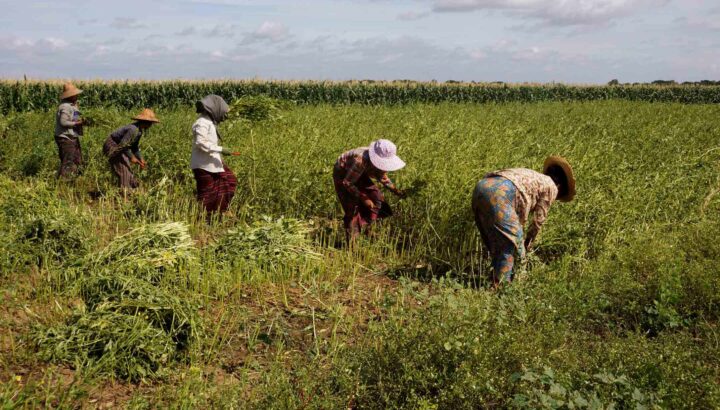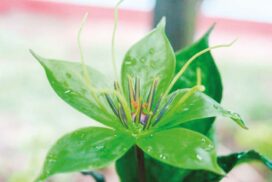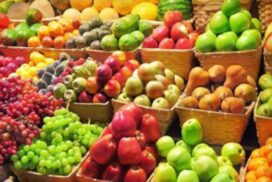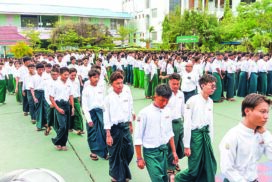The sesame market is sluggish as Chinese New Year is approaching, and some buyers stop buying. Yet, the price is stable, traders from Mandalay market said.
The market of edible oil crop has been slow-moving from the previous week as the Chinese New Year festival is drawing nearer. It is normal that the market faces slow-down during that time, said U Zaw Moe, general secretary of Monywa Commodity depot.
At present, the black sesame price dips to K50,000 from K55,000-56,000 per basket, the depot stated.
The prices of white and brown sesame varieties remain stable on the back of domestic demand. At the same time, there is low demand by foreign market. The price of black sesame seeds (Samone variety) shows downtick.
On 4 February, the FOB prices of sesame stood at US$2,000-2,100 per tonne of Samone sesame, $1,250-1,300 per tonne of white sesame and $1,150-1,200 per tonne of brown sesame.
Last year, the sesame prices drop by over 20 per cent compared with the prices in the previous years due to the COVID-19 negative impacts. Consequently, the growers do not make large profit this year, a trader from Mandalay market stressed.
Normally, Myanmar exports about 80 per cent of sesame production to foreign markets. China is the main buyer of Myanmar sesame, which is also shipped to markets in Japan, South Korea, China (Taipei), UK, Germany, the Netherlands, Greece, and Poland among the EU countries.
The EU markets prefer organic-farming sesame seeds from Myanmar, said an official from the Trade Promotion Department.
Japan prefers Myanmar black sesame seeds, cultivated under good agricultural practices (GAP), and purchases them after a quality assessment. Black sesame seeds from Myanmar are also exported to South Korea and Japan. Meanwhile, China purchases various coloured sesame seeds from the country. This year, Japan has not purchased Myanmar’s sesame yet.
Sesame is cultivated in the country throughout the year. Magway Region, which has gained a reputation as the oil pot of Myanmar, is the main producer of sesame seeds. The seeds are also grown in Mandalay and Sagaing regions.
Of the cooking oil crops grown in Myanmar, the acreage under sesame is the highest, accounting for 51.3 per cent of the overall oil crop plantation.
The volume of sesame exports has registered at over 96,000 tonnes, worth $130 million, in the financial year 2015-2016; $100,000 tonnes, worth $145 million, in the 2016-2017FY; 120,000 tonnes, worth $147 million, in the 2017-2018FY; 33,900 tonnes valued $43.8 million in the 2018 mini-budget period, 125,800 tonnes, worth $212.5 million in the 2018-2019FY and over 150,000 tonnes of sesame, worth $240 million in the previous 2019-2020FY, the trade data of Central Statistical Organization indicated.
— Ko Htet (Translated by EMM)
Sesame market slightly slides as Chinese New Year Holiday approaches
- February 05, 2021
- 865














